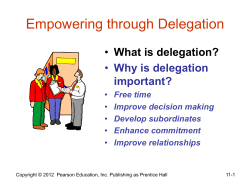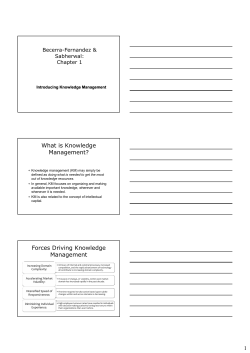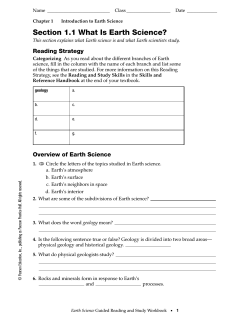
Chapter 2 The Nature of Knowledge Becerra-Fernandez, et al. -- Knowledge
Chapter 2 The Nature of Knowledge Becerra-Fernandez, et al. -- Knowledge Management 1/e -- © 2004 Prentice Hall Chapter Objectives • Understand the difference between knowledge, data, and information • Explain the alternative views of knowledge • Understand the different types of knowledge • Recognize the various locations of knowledge Becerra-Fernandez, et al. -- Knowledge Management 1/e -- © 2004 Prentice Hall What is Data? • Data comprises facts, observations, or perceptions • Data represents raw numbers or assertions Becerra-Fernandez, et al. -- Knowledge Management 1/e -- © 2004 Prentice Hall What is Information? • Information is processed data • Information is a subset of data, only including those data that possess context, relevance and purpose • Information involves manipulation of raw data Becerra-Fernandez, et al. -- Knowledge Management 1/e -- © 2004 Prentice Hall What is Knowledge? • A justified true belief (Nonaka and Takeuchi) • It is different from data & information • Knowledge is at the highest level in a hierarchy with information at the middle level, and data to be at the lowest level • It is the richest, deepest & most valuable of the three • Information with direction Becerra-Fernandez, et al. -- Knowledge Management 1/e -- © 2004 Prentice Hall Data, Information, and Knowledge Knowledge Value Zero Low Data Medium High Very High Information Becerra-Fernandez, et al. -- Knowledge Management 1/e -- © 2004 Prentice Hall Data, Information, and Knowledge:Example Knowledge Counting HTHTT HHHTH … TTTHT pH = nH/(nH+nT) pT = nT/(nH+nT) EV=pH RH+ pT RT pH = 0.40 pT = 0.60 RH = +$10 RT = -$8 nH = 40 nT = 60 Data EV = -$0.80 Information Value Zero Low Medium High Very High Becerra-Fernandez, et al. -- Knowledge Management 1/e -- © 2004 Prentice Hall Data, Information, Knowledge and Events Knowledge Information System Information Use of information Knowledge Data Decision Events Becerra-Fernandez, et al. -- Knowledge Management 1/e -- © 2004 Prentice Hall Subjective View of knowledge • Knowledge as State of Mind • Knowledge as Practice Becerra-Fernandez, et al. -- Knowledge Management 1/e -- © 2004 Prentice Hall Objective View of knowledge • Knowledge as Objects • Knowledge as Access to Information • Knowledge as Capability Becerra-Fernandez, et al. -- Knowledge Management 1/e -- © 2004 Prentice Hall Types of Knowledge • Individual, social, causal, conditional, relational and pragmatic • Embodied, encoded and procedural Becerra-Fernandez, et al. -- Knowledge Management 1/e -- © 2004 Prentice Hall Procedural and Declarative Knowledge • Declarative knowledge (substantive knowledge) focuses on beliefs about relationships among variables • Procedural knowledge focuses on beliefs relating sequences of steps or actions to desired (or undesired) outcomes Becerra-Fernandez, et al. -- Knowledge Management 1/e -- © 2004 Prentice Hall Tacit and Explicit Knowledge • Tacit knowledge includes insights, intuitions, and hunches • Explicit knowledge refers to knowledge that has been expressed into words and numbers • We can convert explicit knowledge to tacit knowledge Becerra-Fernandez, et al. -- Knowledge Management 1/e -- © 2004 Prentice Hall General and Specific Knowledge • General knowledge is possessed by a large number of individuals and can be transferred easily across individuals • Specific knowledge, or “idiosyncratic knowledge,” is possessed by a very limited number of individuals, and is expensive to transfer Becerra-Fernandez, et al. -- Knowledge Management 1/e -- © 2004 Prentice Hall Technically and Contextually Specific Knowledge • Technically specific knowledge is deep knowledge about a specific area • Contextually specific knowledge knowledge refers to the knowledge of particular circumstances of time and place in which work is to be performed Becerra-Fernandez, et al. -- Knowledge Management 1/e -- © 2004 Prentice Hall Illustrations of the Different Types of Knowledge Becerra-Fernandez, et al. -- Knowledge Management 1/e -- © 2004 Prentice Hall Knowledge and Expertise • Expertise can be defined as knowledge of higher quality • An “expert” is one who is able to perform a task much better than others Becerra-Fernandez, et al. -- Knowledge Management 1/e -- © 2004 Prentice Hall Types of Expertise • Associational Expertise • Motor Skills Expertise • Theoretical (Deep) Expertise Becerra-Fernandez, et al. -- Knowledge Management 1/e -- © 2004 Prentice Hall Types of Knowledge • Simple knowledge focuses on one basic area • Complex knowledge draws upon multiple distinct areas of expertise • Support knowledge relates to organizational infrastructure and facilitates day-to-day operations • Tactical knowledge pertains to the short-term positioning of the organization relative to its markets, competitors, and suppliers • Strategic knowledge pertains to the long-term positioning of the organization in terms of its corporate vision and strategies for achieving that vision Becerra-Fernandez, et al. -- Knowledge Management 1/e -- © 2004 Prentice Hall Reservoirs of Knowledge Knowledge Reservoirs Artifacts People Organizational Entities Organizational Units Individuals Practices Groups Technologies Repositories Organizations Inter-organizational Networks Becerra-Fernandez, et al. -- Knowledge Management 1/e -- © 2004 Prentice Hall Characteristics of Knowledge • • • • Explicitness Codifiability Teachability Knowledge Specificity Becerra-Fernandez, et al. -- Knowledge Management 1/e -- © 2004 Prentice Hall Conclusions • Knowledge is different from data & information • Knowledge in an area can be defined as justified beliefs about relationships among concepts relevant to that particular area • Knowledge can be of different types • Knowledge has several characteristics • Knowledge resides is several different places Becerra-Fernandez, et al. -- Knowledge Management 1/e -- © 2004 Prentice Hall Chapter 2 The Nature of Knowledge Becerra-Fernandez, et al. -- Knowledge Management 1/e -- © 2004 Prentice Hall
© Copyright 2025














